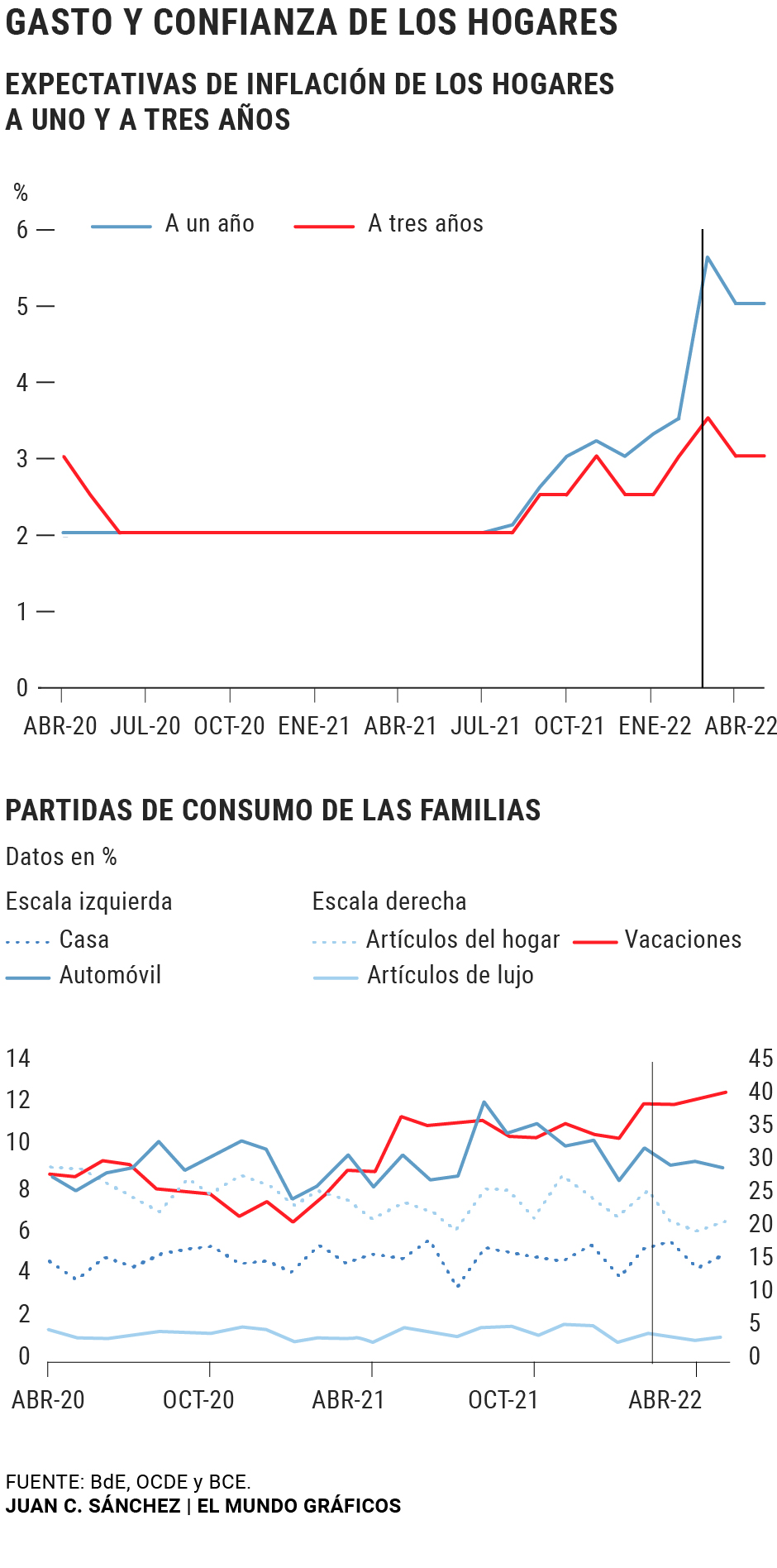Spanish households began preparing for a spike in inflation long before Russia's invasion of Ukraine.
Six months earlier, specifically, which
completely dismantles the Government's discourse
and its assertion that the price crisis is due exclusively to the war.
And that crisis, which is undoubtedly aggravated by the pandemic, has an energy component that is unleashing a very complex situation for low incomes:
they are already stopping consuming
certain goods to be able to face the bill of the light.
These conclusions are offered by the Bank of Spain in an analytical report on inflation and Spanish households that it published yesterday, and in which it notes that "the distribution of inflation rates that Spanish families anticipate for one and three years from now began to be revised upwards
from the summer of 2021
».
Subsequently, "the increase intensified as a result of the war, in line with the notable acceleration observed since then in the cost of raw materials and food," he adds, thus confirming that households detected an inflationary process much earlier than expected. confirmed by the Executive.
The BdE also explains that “when comparing the rates referring to a horizon of one and three years, it is observed that the former are well above the latter, which indicates that households anticipate that the current inflationary episode
will moderate substantially in the medium term
».
Most organizations forecast that prices will remain very high this year and that next year, indeed, they will begin to moderate, although according to Funcas the average figure for 2023 will still be a notable 4.8%.
And in reference to the strong impact that inflation and, specifically, the increase in energy prices are having especially on families with lower incomes, the BdE points out that "families with a modest cushion of liquidity
have reduced spending on other property
'.
"These households are, for the most
part, low-income
, which, in addition, are more exposed to variations in the price of energy, since for these households the energy bill absorbs a greater proportion of their income," the agency deepens.
On the other hand, "families that have a greater liquidity cushion have not substantially modified their spending levels in other items in the face of an increase in these costs and, therefore, they would have reduced their savings rates temporarily to face them" .
The report also states that "the increase in uncertainty caused by the war in Ukraine has resulted in a downward revision of household spending expectations on durable goods", especially highlighting the "
downward adjustment in automobiles
».
That is, families are reducing, postponing or even canceling car purchases and spending on car maintenance.
This is also directly connected to the new forms of employment, teleworking and even the transition process to another type of mobility.
The change in behavior and customs only confirms if one attends to another report that was also published yesterday, in this case, EuroTaller.
According to this document, families invested an average of 572 euros in car care last year, four times less than the investment made in bars and restaurants, which amounted to 2,299 euros.
Thus, after the pandemic, spending on leisure increased by 30.5%, double that spent on getting the car ready.
In ten years, the expense of families in the maintenance of their vehicles has decreased by 8.34%, is added in that work collected by Europa Press.
Conforms to The Trust Project criteria
Know more

